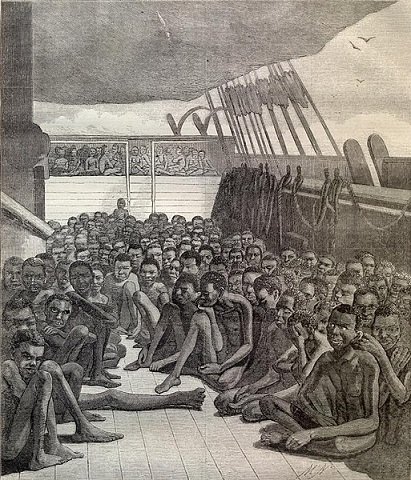For the past few weeks, we have been looking at the history of Southern and Northern parts of Nigeria before the colonial era. One very unique feature of Nigeria before the arrival of the Europeans is; various parts of Nigeria operated in full autonomy. That is; they had their own laws, political codes, and administrative heads without a recourse to any standardized law. However, many things changed with the arrival of the Europeans. Here, we will do a survey of the amalgamation process and emergence of Nigeria as a political entity.

Creation of Nigeria
Most of you may have already known that Nigeria was once a British colony. Much more than this, the British have also been given credit for the creation of Nigeria. However, if you are familiar with the history of Nigeria, you sill agree with me that the British were not the the first Europeans that arrived Nigeria. Long before the arrival of the British, the Portuguese found their way into Nigeria and the very first contact they made was in 15th century and that was in Bini (present day Edo state, Southern part of Nigeria) during the reign of Oba Ewuare of the ancient Bini kingdom.
Long after the arrival of the Portuguese, the British then made their way to Nigeria. During the early days of British arrival in Nigeria, the very unfortunate connection with Nigeria was for slave trade (that is; Trans-Atlantic slave trade). Just to let y'all know, Nigeria was a victim of human (slave) exportation which lasted for almost 65 years. By the end of 16th century, the trade heightened and became the dominant trade item between Nigeria and the British.
Paradigm Shift in Trading
After about 65 years of cruel human trade, there was a paradigm shift to legitimate trade. Remember, one of the factors that triggered slave trade was because of the need for manpower to work on the massive sugarcane plantation in New World. They needed manpower and they found the black Africans (particularly Nigerians) as being able to work for hours without getting tired. However, during the first industrial revolution, machines arose and they saw no need for human labour when machines were more efficient - that was how the paradigm shift started.
Asides this; some activists (the likes of William Wilberforce) started seeing the ill and cruel treatment being meted out to the black slaves and they started advocating for the abolishment of this kind of inhuman trade. During that period also, missionaries started visiting Nigeria and they joined in the fight against slave trade through their gospel of peace. During the period of legitimate trade in Nigeria, the Europeans introduced a policy known as "Gun-boat" to checkmate and ultimately stop slave trade activities. They paraded the sea, and any boat that they captured trafficking humans will be commandeered and the slaves freed to Freetown (Sierra Leone).

During this period, Nigeria was a separate entity with Lagos being one of the British colonies. This was the reason they moved to unite the various protectorates into a single entity in a process known as amalgamation.
First Amalgamation - 1906
Long before the 20th century, like we said before, Nigeria was politically separated, and the various parts of Nigeria that had been before the Europeans (British in particular) operated individually. However, by 1900, there was a standardized system introduced, which led to the first amalgamation process. The first amalgamation process took place in 1906 which involved Lagos being amalgamated with the Southern protectorates of Nigeria, thereby giving rise to a new entity.
At that time, the government of Nigeria was under the British rulership, so the amalgamation process was done without prior consent from Nigerian populace. One of the major reasons of the 1906 amalgamation was for economic reason - to raise finance from the stronger protectorate and use it to run the weaker protectorate. This led to the second amalgamation process.

Second Amalgamation - 1914
This is arguably the main amalgamation and it happened in 1914. This amalgamation involved the Southern and Northern protectorates of Nigeria and that was how "one Nigeria" came into existence. At that time, the Northern part of Nigeria was not as financially stable as the Southern, so the amalgamation helped to even out the lapses and the surplus that were generated by the Southern part was used to run the Northern part too.
The brain behind the 1914 amalgamation was Sir Fredrick lord Lugard. Together with the British imperial officers, there were able to run the amalgamated Nigeria, but the question is; was the amalgamation process beneficial or disadvantageous to Nigeria as a whole? Well, we'll find out in out next post.
Prior to the amalgamation by lord Lugard, he was a British soldier who later became a high commissioner and then went on to become the governor of the defunct Northern protectorate of nigeria - this was how he rose to the top row and finally had his way and merged the Northern and Southern protectorates.
During the pre-amalgamation era and almost throughout the colonial era till immediately after the civil war, the Pounds Sterling was the legal tender and currency of Nigeria, of course, it was brought to Nigeria by colonialism. After the civil war, Nigeria's indigenous Naira and Kobo were introduced and many other things that were brought by colonialism (like driving pattern - right hand drive) were also changed. This was how Nigeria emerged as a political entity.
Authored by @samminator
Click the coin below to join our Discord Server
)
You're starting an interesting and important series in world history. In America, as you well say, in colonial times slave labour imported from Africa was used. In many of the Latin or Caribbean countries, such as Cuba, Haiti or Brazil, the plantation governs the central economy, so that the exploitation of the land, the cultivation of sugar cane, cocoa, cotton, was in the hands of slaves yorubas or mandingos. On the other hand, in my country, Venezuela, the black people from the Congo and Angola arrived, and as far as I know they were the most numerous in this area, because they were more culturally docile. Venezuela is a country that prides itself on being a mixture of Indians, blacks and Spaniards. A mixture that only gives us the color of the skin, the facial features, also the customs; so to speak of Africa is to speak of our ancestors. I am pending, @samminator
Thanks so much, Nancy, for your nice comment. True, many non-African nations (the wider world) with huge population of blacks are, most probably, the result of human (slave) exportation from Africa to such places in the pre-colonial times. I'm glad industrialization came to replace human labour and the need for slave trade.
Interesting transformation. Was t a peaceful or bloody occupation, that of the British?
Do you think Nigeria would have evolved into a better or worse political entity had, say, the Portuguese or the Spaniards taken control of it?
Here in Venezuela we always wonder what would have happened had we been colonized by the British, instead of the Spaniards. Many attribute our failure as a nation to the very origin of our existence as an colonial territory (for mere exploitation rather than as "a- city- upon- a- hill" sort of project).
Actually, colonialism has its own downsides. Even not being colonized at all has its own downsides too. Take for example; Liberia was not (completely) colonized by European superpowers, but their economy isn't better than the countries that were colonies of European superpowers. Same with Ethiopia... these are the only two countries in Africa that weren't completely colonized by European superpowers.
Thanks for coming, Henry
It's an interesting line you're offering us now, @samminator. The phenomenon of the enslavement of an important part of the African population not only had terrible effects, but also some fundamental historical consequences in the ethnic-cultural formation of several peoples of America.
Knowing the political-administrative evolution of Nigeria will enrich our world political culture. I would say that these processes of political unification, beyond functioning as a control mechanism (for foreign or internal forces) by centralization, is an unstoppable step in the political modernization of peoples. The emergence of the so-called "nation-state" was a necessity in the political evolution of humanity; then that stage has been enriched by federalism and decentralization.
Pay attention to your information on the matter. Thank you.
I agree with you on this, Jose. The history of Nigeria will not be complete without mentioning the enslavement part... no doubt, this formed the basis of our history in the pre-colonial/colonial era.
Thanks for coming around buddy
1 !BEER Token for you
To view or trade
BEERgo to steem-engine.com.Hey @adsactly, here is your
Do you already know our [BEER Crowdfunding](https://steemit.com/cryptocurrency/@beerlover/let-s-grow-and-update-the-beer-token-huge-crowndfunding-as-crowdsale)BEERtoken. Enjoy it!Hi, @adsactly!
You just got a 0.32% upvote from SteemPlus!
To get higher upvotes, earn more SteemPlus Points (SPP). On your Steemit wallet, check your SPP balance and click on "How to earn SPP?" to find out all the ways to earn.
If you're not using SteemPlus yet, please check our last posts in here to see the many ways in which SteemPlus can improve your Steem experience on Steemit and Busy.
Nice history piece again @samminator. It's sad to know that people were actually a trade commodity in the time past. I can imagine the trauma those people passed through from their slave masters. Height of cruelty. I'm glad it was stopped
Hey @adsactly has come again with an impressive Nigerian history. Thanks so much. I didnt that Portuguese were the first European to come into this land. Thanks @samminattor for this eye opening history. This will help alot of Nigerians to know about the emergence of the country called Nigeria.
I am pleased by this great masterpiece, the way you come up with all this baffles me. What an interesting history, you must be close to your grand dad back then hahaha.
Seeing how and what led to the slave trade tocches my heart. Truth be told, the history of Nigeria can't be complete without mentioining about the slave trade era.
Thanks for this awesome work
Colonialism and Slave trade... I've read that part of Nigerian history but never saw it in the detailed manner you presented here. You did a good job. Kudos @samminator